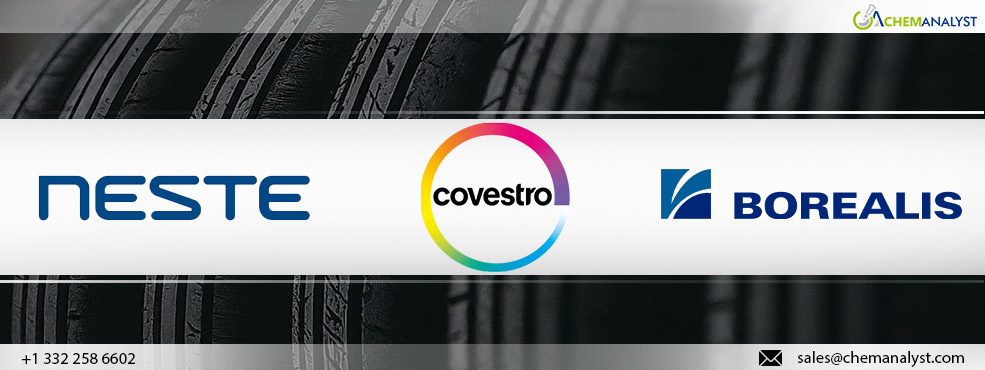Welcome To ChemAnalyst

Neste, Borealis, and Covestro have entered into a project agreement to facilitate the recycling of discarded tires into high-quality plastics for automotive applications. This collaboration seeks to promote circularity within the plastics value chain and the automotive sector. Through chemical recycling, used tires are transformed into liquid form, processed into base chemicals, and subsequently converted into high-purity polycarbonates. These polycarbonates can then be utilized in various automotive components, including headlamp parts and radiator grilles.
“Achieving circularity necessitates collaboration, and our partnership with Neste and Borealis demonstrates the potential we have,” states Guido Naberfeld, Senior Vice President and Head of Sales and Market Development Mobility at Covestro. “We're innovating ways to repurpose scrapped car components into fresh automotive parts, aiding our automotive partners while addressing a pivotal challenge in the value chain: merging top-notch materials with recycled content. Initiatives like this offer a viable solution.”
In this collaboration, Neste converts liquefied discarded tires into a high-quality raw material for polymers and chemicals manufacturing, supplying it to Borealis. Borealis then processes this raw material from Neste into base chemicals phenol and acetone, which are subsequently supplied to Covestro. Covestro utilizes these materials to produce polycarbonates. The recycled content is tracked and attributed through the mass balancing approach, adhering to ISCC Plus certification, all the way to the final products.
The initial products resulting from this collaboration are now available, with each partner having produced the first batch of their respective contributions. In addition to polycarbonates, the project partners are also exploring the potential for polyurethanes as an end product, which could be utilized in car interiors. The companies stress the importance of considering the scalability of such developments when setting ambitious targets for future EU regulations, including the End-of-Life Vehicles Regulation.
“We are showcasing the critical role of value chain collaboration in transforming waste into valuable resources,” says Thomas Van De Velde, Senior Vice President of Base Chemicals at Borealis. “We are proud to be part of this project alongside Neste, contributing to more sustainable polymer solutions for Covestro and its customers.”
“This project can act as a model for achieving circularity in automotive plastics,” says Jeroen Verhoeven, Vice President of Value Chain Development for polymers and chemicals at Neste. “It showcases the transformation of inferior waste materials into superior-quality plastics. This is beneficial for both the polymers and automotive industries, as well as for the environment.”
Neste leverages science and innovative technology to convert waste and other resources into renewable fuels and circular raw materials. The company provides solutions to combat climate change and promote the transition to a circular economy. As the world's leading producer of sustainable aviation fuel (SAF) and renewable diesel, as well as a pioneer in developing renewable and circular feedstock solutions, Neste aims to help its customers reduce greenhouse gas emissions by at least 20 million tons annually by 2030.
We use cookies to deliver the best possible experience on our website. To learn more, visit our Privacy Policy. By continuing to use this site or by closing this box, you consent to our use of cookies. More info.
